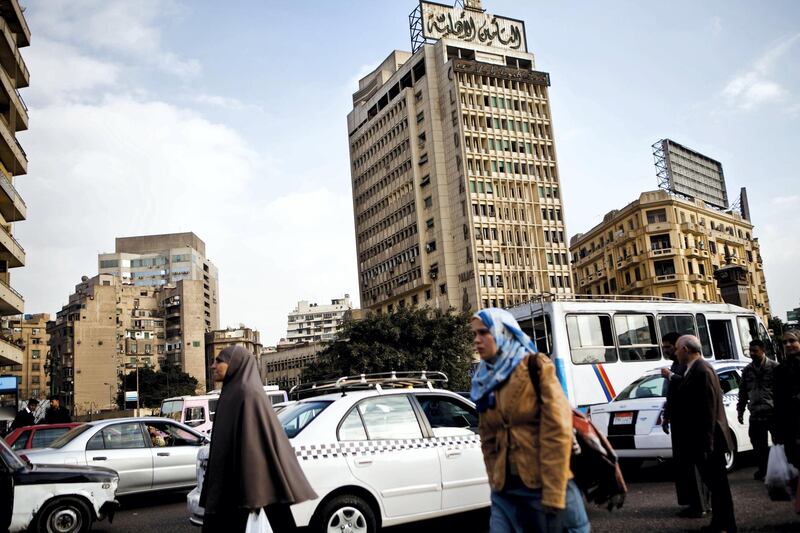The International Monetary Fund approved the fifth instalment of its $12 billion (Dh44bn) loan facility to Egypt, bringing the total to $10bn so far.
“The macroeconomic outlook remains favourable, supported by strong policy implementation. Robust growth and a narrowing of the current account deficit reflect a rebound in tourism and strong remittances, while unemployment has declined to its lowest level since 2011,” said David Lipton, first deputy managing director and acting chair at the IMF following the institution’s review of Egypt’s reform process.
Egypt’s gross domestic product is forecast to grow at 5.5 per cent this year, up from an expected 5.3 per cent rate in 2018 and 4.2 per cent in 2017, according to the IMF’s projections. This is one of the fastest economic growth rates in the Middle East and North Africa region after years of instability.
Egypt, North Africa’s largest economy, suffered major setbacks as a result of political turmoil stemming from the Arab uprisings, with economic growth losing momentum, capital outflows increasing and inflation skyrocketing. To reverse years of decline, the country is implementing economic reforms.
The Arab world’s most populous country is on track to achieving a primary surplus target of 2 per cent of GDP, according to the IMF said.
"The authorities remain committed to reaching cost recovery for most fuel products by mid-2019 and implementing automatic fuel price indexation, which together are critical to encourage more efficient energy use, and combined with revenue enhancing reforms will help create fiscal space for high-priority spending on health and education,” Mr Lipton said.
___________
Read more:
IMF set to clear $2bn Egyptian loan tranche on good economic progress
Egypt won't seek further IMF funding when programme ends
__________
Under the IMF-backed overhaul, the country has made deep cuts to energy subsidies, introduced new taxes and floated its currency in a bid to boost economic activity, strengthen investor confidence and restore stability to capital markets. Unemployment, which reached 12.7 per cent in 2015-16, is projected to fall to 9.6 per cent this year and 8.3 per cent by 2020.
“The authorities’ structural reform agenda aims to support inclusive growth by addressing long-standing constraints to private sector development. These include reforms to improve competition policy, public procurement, management of SOEs, and land allocation," Mr Lipton said. "Sustained implementation of these reforms is essential to reduce opportunities for rent seeking and to support strong and inclusive medium-term growth and job creation."
The IMF also cautioned in its latest review that while the outlook remained favourable, a more difficult external environment posed new challenges as global financial conditions had tightened.
"Egypt has successfully weathered recent capital outflows, but consistent policy implementation will be essential to further strengthen policy buffers, including by containing inflation, enhancing exchange rate flexibility and reducing public debt,” Mr Lipton added.







